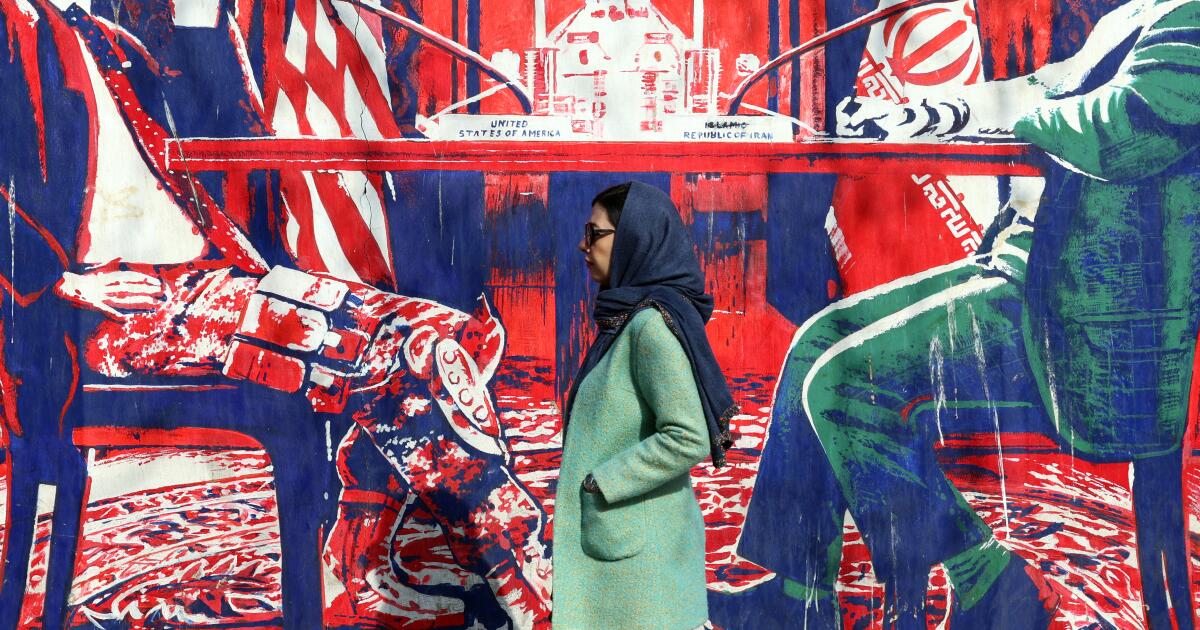Culture
What Are Book Blurbs, and How Much Do They Matter in Publishing?

“Absolutely riveting” and “compelling.” “A must-read” and “a tour de force.” Blurbs, those haiku-length endorsements on every book jacket, are a ubiquitous part of the literary scene, boldly declaring that the book you’re about to delve into is “life-changing.” Or “mesmerizing.” Or “captivating.” Or “unputdownable.”
Authors love to hate them. Debut writers struggle to gather them. Established writers struggle to fulfill requests from friends, authors who share the same publisher or agent, and promising newcomers who deserve a leg up.
The famously fractious publishing community seems to agree on this point: Blurb collection is a time-consuming, dispiriting and occasionally mortifying process, one that takes time away from the actual writing and editing of books.
But until last week, the quid pro quo cycle felt inescapable, an essential part of rolling out a book and giving it a fighting chance in a crowded marketplace.
Then, on Thursday, Sean Manning, the publisher of Simon & Schuster, announced in an essay in Publishers Weekly that authors under contract with the house’s flagship imprint would no longer be expected to solicit feedback from fellow writers.
“Trying to get blurbs is not a good use of anyone’s time,” Manning wrote. He commended “the collegiality of authors,” but pointed out that “favor trading creates an incestuous and unmeritocratic literary ecosystem that often rewards connections over talent.”
The news spread through the industry like the juiciest gossip, prompting a range of reactions.
“I do agree that the blurb ecosystem is a scourge,” the novelist Jami Attenberg wrote in an email, referring to Manning’s essay. “So many of my author friends complain about the time we spend on it!”
So far, Manning said in an interview, he has received dozens of supportive messages from agents, authors and booksellers. But questions remain about how this decision will affect the literary world.
Do blurbs really help sell books?
The truth is, no one can say for sure.
“I don’t know if blurbs have ever worked,” Manning said. “There’s no metric to tell.”
Victoria Ford, the owner of Comma, a bookstore in Minneapolis, said, “My initial reaction was that blurbs don’t matter at all.” She’d rather read a thorough summary on the back of a book, or a lively description on the flyleaf, than rely on a few beats from an established author who might have a personal relationship with the author in question.
As for her customers, Ford went on: “I have not noticed readers paying a lot of attention to blurbs, with a few exceptions. I’ve definitely sold books because a customer was browsing and saw a book Ann Patchett had blurbed. Readers trust her.”
How do writers feel about asking for them?
In one word, conflicted. Asking is awkward, but the right blurb might make a difference, signaling to readers that they should pay attention to this book, among so many others.
“Honestly, there’s never been a time in my 30-year career when getting blurbs from authors was either easy or stress-free,” Kristin Hannah, the author of “The Women,” wrote in an email. “It’s a difficult thing to ask of one’s friend and it’s even more difficult to ask for a favor from someone whose work you admire as a reader, but don’t know personally.”
In preparation for the publication “Master Slave Husband Wife,” Ilyon Woo wrote personal letters to nine writers whose work she admired, asking them to read her book and offer an endorsement. The blurbers who responded, she said, were “fairy godwriters.”
“When I was writing, I was in the deep, dark basement of my mind,” she said. “And the blurbs were the first signs of life outside the book.”
“Master Slave Husband Wife” went on to win the Pulitzer Prize for biography.
Of course there were a few requests that didn’t bear fruit; that goes with the territory. And, for the record, “blurb” moonlights as a verb, as in “to blurb or not to blurb.” It’s a complicated question for all involved.
And how do they feel about giving blurbs?
When Attenberg’s novel “The Middlesteins” came out in 2012, Jonathan Franzen praised the “artistry of her storytelling” — a cover-worthy blurb that was “helpful for the life of my book not just here but abroad, too,” Attenberg wrote.
She has tried to pay it forward over the past decade, but recently had to declare a blurb hiatus while working on a new novel.
“We all want to be helpful, but also we are busy,” she wrote. “It’s a real tussle. My long-term solution has been to cap how many books I blurb a year to a dozen.”
Hannah said that she also tries to repay kindnesses when it comes to blurbing, but that “in the past few years, it’s become difficult to keep up.”
Do readers care?
Here’s a sad truth, given how much effort goes into blurbs: They might not be that important to the average reader.
On a Sunday, 18 out of 20 readers asked in an informal survey at Indigo, a bookstore in Short Hills, N.J., had no idea what a blurb is.
When asked whether she selects books based on adulatory praise on the jacket, Jaclyn Tepedino, 29, said: “Me, personally, I do not. I’m looking at the summary.”
Sylvia Costlow, 86, said that praise from David Baldacci or Daniel Silva would catch her eye; otherwise, she forms her own opinions. Her daughter, Elaine Graef, 59, agreed: “I shop a lot online and pay attention to what other readers say about a book.”
Charles Han, 24, and Joanna Baltazar, 23, were browsing in the fantasy section when they learned the proper term for quotes on the front of books. Do they pay attention to these quotes? “No,” Baltazar said. “Never,” Han agreed.
Kevin Miller, a 67-year-old “Star Trek” fan, said he would take note only if William Shatner endorsed a book.
“I like to have the opinion of other authors,” said Sharon Smith, who is in her 70s. But, she added, reviews from fellow readers mean more: “I feel like they’re not influenced by anyone.”

Culture
Try This Quiz on Thrilling Books That Became Popular Movies

Welcome to Great Adaptations, the Book Review’s regular multiple-choice quiz about printed works that have gone on to find new life as movies, television shows, theatrical productions and more. This week’s challenge highlights thrillers first published as novels (or graphic novels) that were adapted into popular films. Just tap or click your answers to the five questions below. And scroll down after you finish the last question for links to the books and their screen versions.
Culture
Test Your Knowledge of the Authors and Events That Helped Shape the United States

Welcome to Lit Trivia, the Book Review’s regular quiz about books, authors and literary culture. In honor of Gen. George Washington’s birthday on Feb. 22, this week’s super-size challenge is focused on the literature and history related to the American Revolution. In the 10 multiple-choice questions below, tap or click on the answer you think is correct. After the last question, you’ll find links to exhibits, books and other materials related to this intense chapter in the country’s story, including an award-winning biography of the general and first U.S. president.
Culture
Video: How Much Do You Know About Romance Books?

Let’s play romance roulette. No genre has dominated the books world in the last few years. Like romance, it accounts for the biggest percentage of book sales, their avid fan bases. Everyone has been talking about romance as a Book Review editor and as a fan of the genre myself, I put together a to z glossary of 101 terms that you should know if you want to understand the world of romance are cinnamon roll. You may think a cinnamon roll is a delicious breakfast treat, but in a romance novel, this refers to a typically male character who is so sweet and tender and precious that you just want to protect him and his beautiful heart from the world. Ooh, a rake. This is basically the Playboy of historical romance. He defies societal rules. He drinks, he gambles. He’s out on the town all night and is a very prolific lover with a bit of a reputation as a ladies’ man. FEI these are super strong, super sexy, super powerful, immortal, fairy like creatures. One of my favorite discoveries in terms that I learned was stern brunch daddy. A lot of daddy’s usually a male love interest who seems very intimidating and alpha, but then turns out to be a total softie who just wants to make his love interest brunch. I think there’s a misconception that because these books can follow these typical patterns, that they can be predictable and boring. But I think what makes a really great romance novel is the way that these writers use the tropes in interesting ways, or subvert them. If you can think of it, there’s probably a romance novel about it. Oops, there’s only one bed. This is one of my personal favorite tropes is a twist on forced proximity. Characters find themselves in very close quarters, where inevitably sparks start to fly. Why choose is the porkulus dose of the romance world. Sometimes the best way to resolve a love triangle is by turning it into a circle, where everyone is invited to play. Oops, we lost one spice level. There’s a really wide spectrum. You can range from really low heat or no spice, what might also be called kisses. Only then you start to get into what we call closed door or fade to Black. These books go right up to the moment of intimacy, and then you get into what we call open door, which is more explicit. And sometimes these can get very high heat or spicy and even start verging into kink. There’s one thing that almost every romance novel has in common. It’s that no matter what the characters get up to in the end, it ends with a happily ever after. I say almost every romance novel. Sometimes you’re just happy for now.
-

 World2 days ago
World2 days agoExclusive: DeepSeek withholds latest AI model from US chipmakers including Nvidia, sources say
-

 Massachusetts3 days ago
Massachusetts3 days agoMother and daughter injured in Taunton house explosion
-

 Montana1 week ago
Montana1 week ago2026 MHSA Montana Wrestling State Championship Brackets And Results – FloWrestling
-

 Louisiana5 days ago
Louisiana5 days agoWildfire near Gum Swamp Road in Livingston Parish now under control; more than 200 acres burned
-

 Denver, CO3 days ago
Denver, CO3 days ago10 acres charred, 5 injured in Thornton grass fire, evacuation orders lifted
-

 Technology1 week ago
Technology1 week agoYouTube TV billing scam emails are hitting inboxes
-

 Technology1 week ago
Technology1 week agoStellantis is in a crisis of its own making
-

 Politics1 week ago
Politics1 week agoOpenAI didn’t contact police despite employees flagging mass shooter’s concerning chatbot interactions: REPORT
























